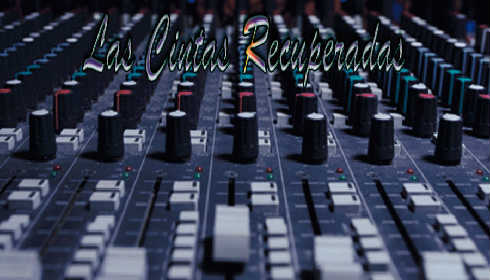 1.Ocean Wave
1.Ocean Wave2.Ancient Techno
3.Rose Garden
4.Worldwide Funk
5.Kaira
6.Mountain Love Dance
7.Party
8.Voice Of The Kudrus
9.Sunjatta Keita.
Jack DeJohnette - Drums
Foday Musa Suso - Kora.
By John Kelman
For drummer Jack DeJohnette's second project on his fledgling Golden Beams Productions record label, he moves from the Asian subcontinent south to Africa for a series of duets with master Gambian kora player Foday Musa Suso. While Music from the Hearts of the Masters is, in its own way, as hypnotic as DeJohnette's first release on his label, the meditative Music in the Key of OM, it's also more actively engaging and extroverted.
At first glance the conventional drum kit and the 21-string lute/harp-like kora would appear to make strange bedfellows, especially given that, for the most part, both DeJohnette and Suso work within the traditions that they are most comfortable with. DeJohnette's intuitive sense of swing pervades, while Suso's melodic and harmonic ideas clearly come out of the African folk traditions that comprise his roots. Still, what makes this programme of mostly improvised music—other than two traditional tunes and one Suso composition, everything is credited to both artists—so compelling is that both players are not only looking for common ground, but finding it as well.
This should come as no surprise, given that Suso has a larger musical reach that has seen him in collaboration with artists including Kronos Quartet, Phillip Glass, and Herbie Hancock. In fact, Suso takes a step further, bringing the kora into the 21st Century by utilizing subtle sound processing, as well as more overt use of looping technology to create layers of sound that give the duo a considerably fuller sound. Equally, DeJohnette's reputation and purview may be more firmly rooted in the jazz world, but that's by no means a narrowing definition; it takes a broad world view to work with artists as diverse as Alice Coltrane, Bill Laswell, Wadada Leo Smith, and Keith Jarrett.
But while both artists look for a nexus point, neither is prepared to completely give up his own disposition, making Music from the Hearts of the Masters a unique experience. Suso's kora is so richly textured that it's hard not to be drawn in, while DeJohnette's groove-laden kit work creates an equally inviting space. And while most of the improvisations are based around simple changes, often established by Suso and then looped in order to allow him to layer additional melodies on top, both DeJohnette and Suso are keen listeners who find ways to bridge the seemingly disparate stylistic gaps.
The inherent simplicity of Music from the Hearts of the Masters belies the virtuosity of both DeJohnette and Suso, but it's exactly that level of sophistication that allows the two to make what might appear a self-limiting proposition such a success. A sense of innocence and joy makes this album a spiritual partner with DeJohnette's more introspective Music in the Key of OM. With Golden Beam Productions, DeJohnette is clearly exploring avenues that he'd be less likely to visit with the major labels, and that's good news indeed.
At first glance the conventional drum kit and the 21-string lute/harp-like kora would appear to make strange bedfellows, especially given that, for the most part, both DeJohnette and Suso work within the traditions that they are most comfortable with. DeJohnette's intuitive sense of swing pervades, while Suso's melodic and harmonic ideas clearly come out of the African folk traditions that comprise his roots. Still, what makes this programme of mostly improvised music—other than two traditional tunes and one Suso composition, everything is credited to both artists—so compelling is that both players are not only looking for common ground, but finding it as well.
This should come as no surprise, given that Suso has a larger musical reach that has seen him in collaboration with artists including Kronos Quartet, Phillip Glass, and Herbie Hancock. In fact, Suso takes a step further, bringing the kora into the 21st Century by utilizing subtle sound processing, as well as more overt use of looping technology to create layers of sound that give the duo a considerably fuller sound. Equally, DeJohnette's reputation and purview may be more firmly rooted in the jazz world, but that's by no means a narrowing definition; it takes a broad world view to work with artists as diverse as Alice Coltrane, Bill Laswell, Wadada Leo Smith, and Keith Jarrett.
But while both artists look for a nexus point, neither is prepared to completely give up his own disposition, making Music from the Hearts of the Masters a unique experience. Suso's kora is so richly textured that it's hard not to be drawn in, while DeJohnette's groove-laden kit work creates an equally inviting space. And while most of the improvisations are based around simple changes, often established by Suso and then looped in order to allow him to layer additional melodies on top, both DeJohnette and Suso are keen listeners who find ways to bridge the seemingly disparate stylistic gaps.
The inherent simplicity of Music from the Hearts of the Masters belies the virtuosity of both DeJohnette and Suso, but it's exactly that level of sophistication that allows the two to make what might appear a self-limiting proposition such a success. A sense of innocence and joy makes this album a spiritual partner with DeJohnette's more introspective Music in the Key of OM. With Golden Beam Productions, DeJohnette is clearly exploring avenues that he'd be less likely to visit with the major labels, and that's good news indeed.

No comments:
Post a Comment